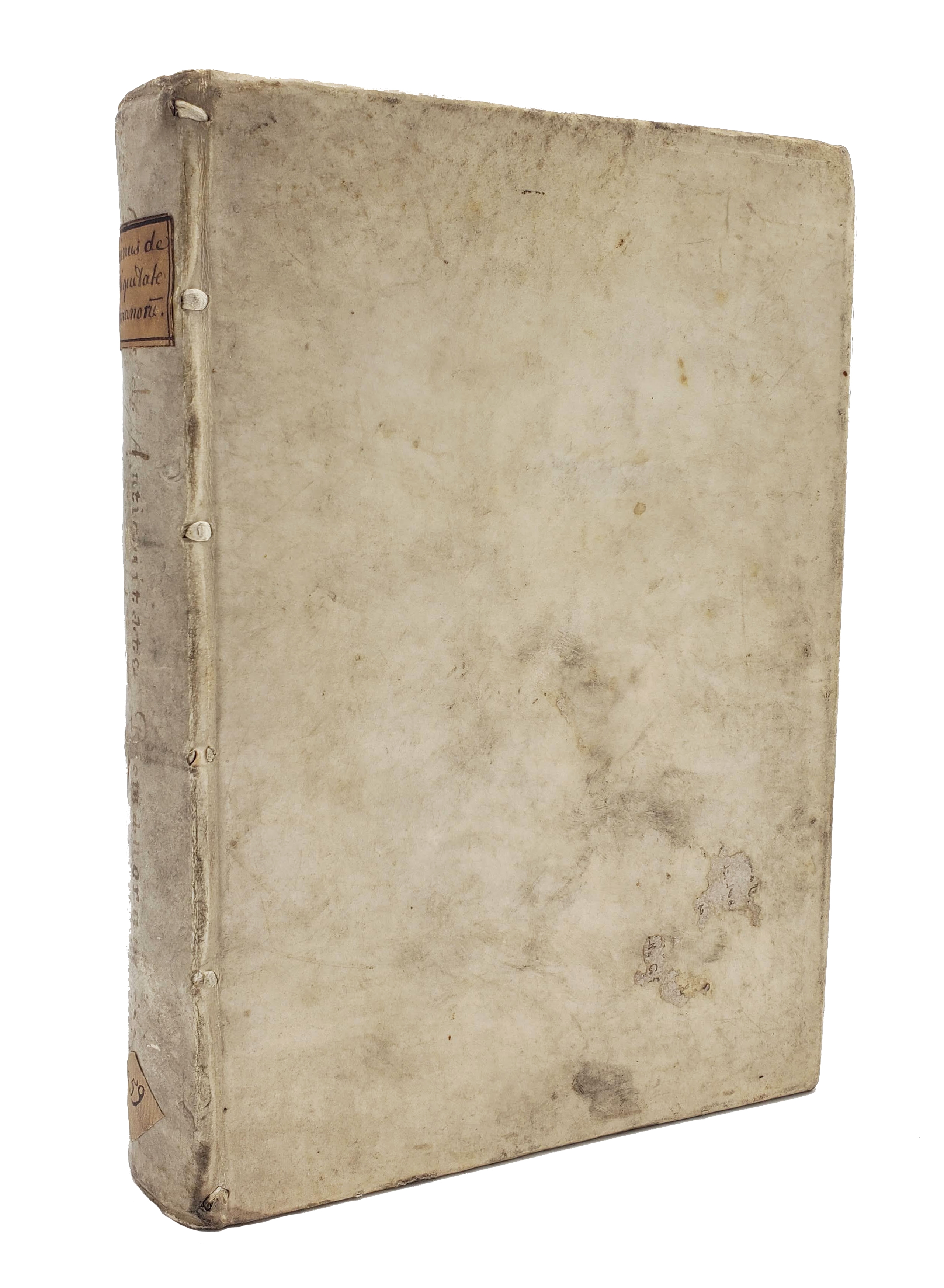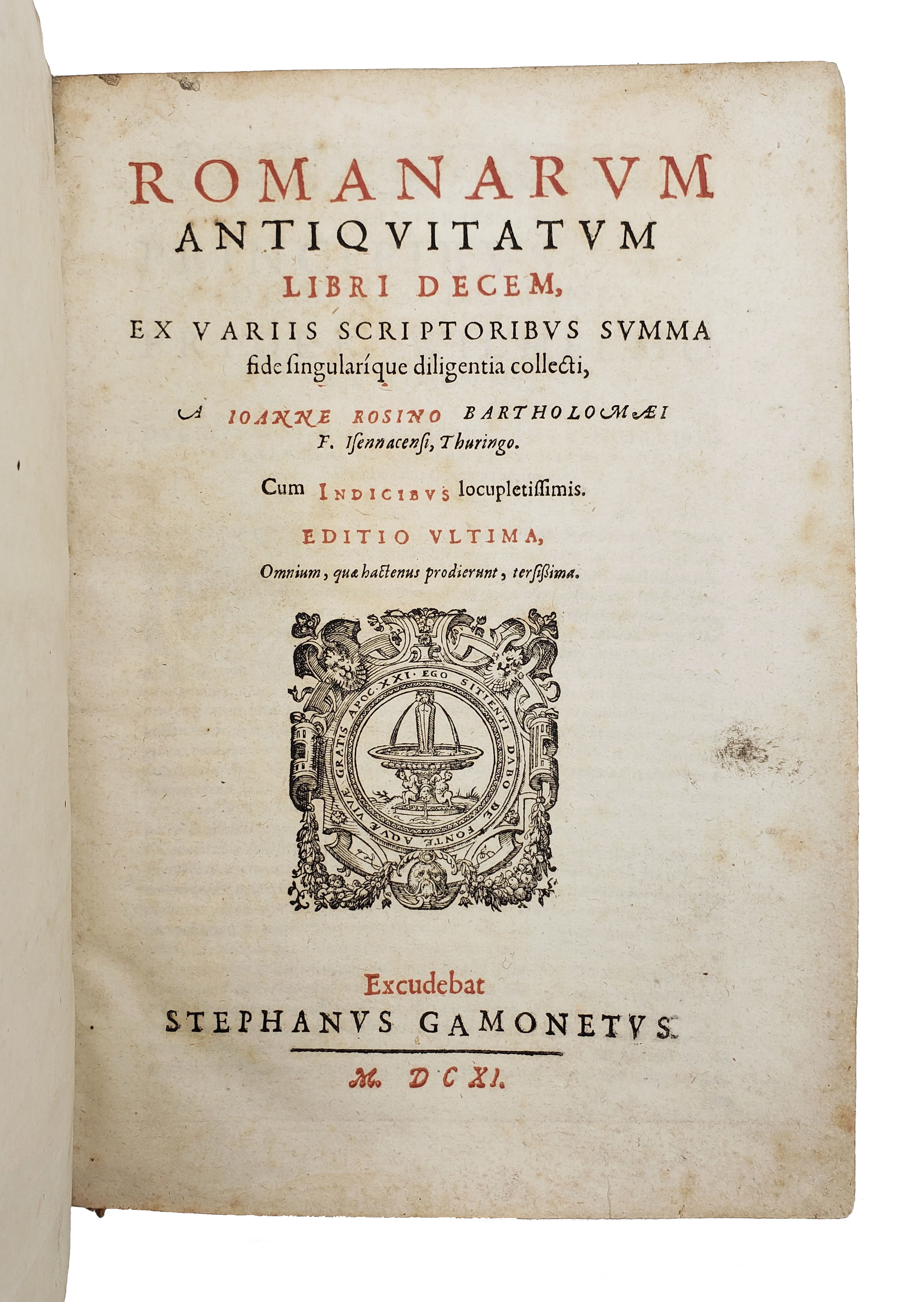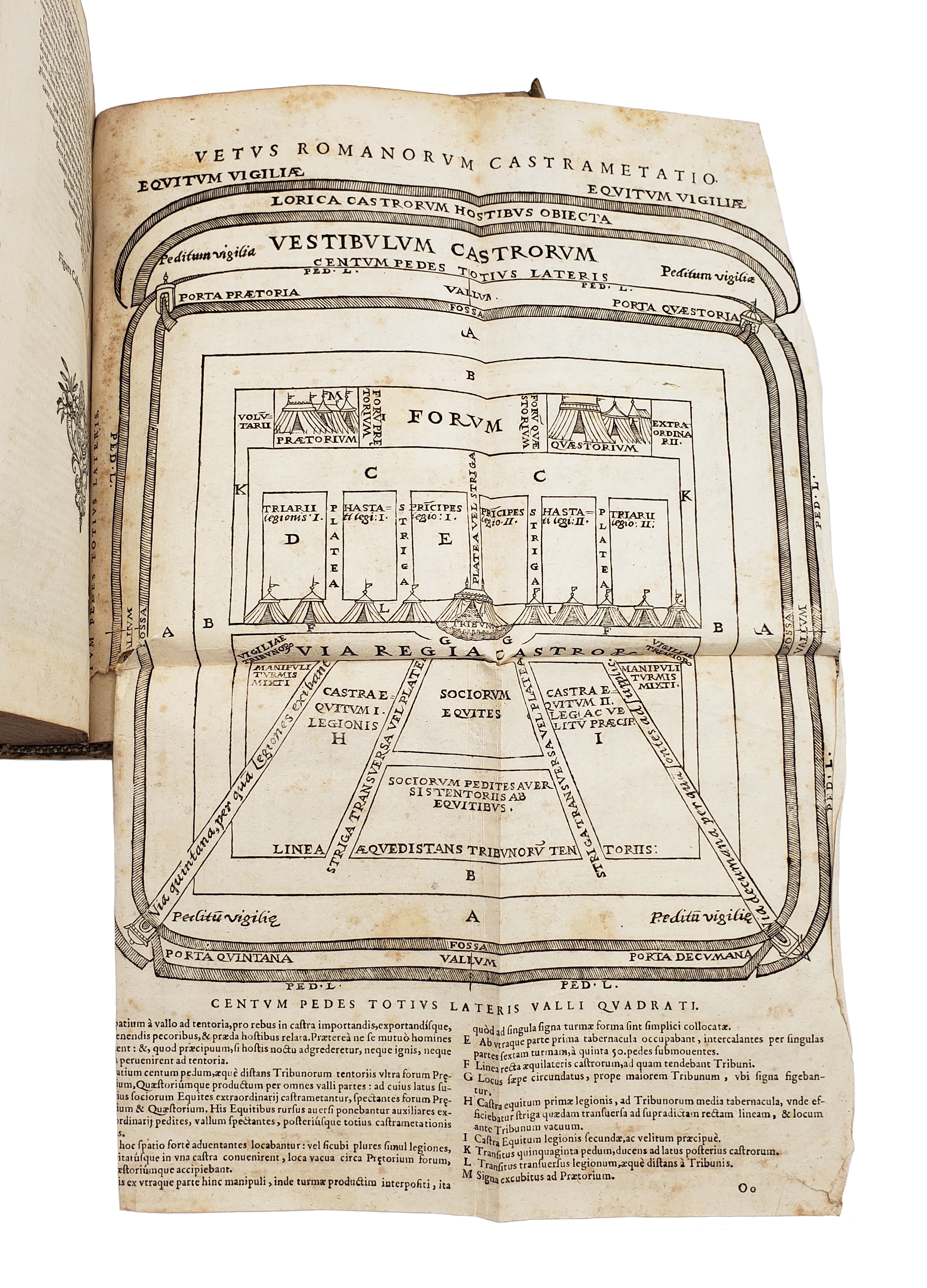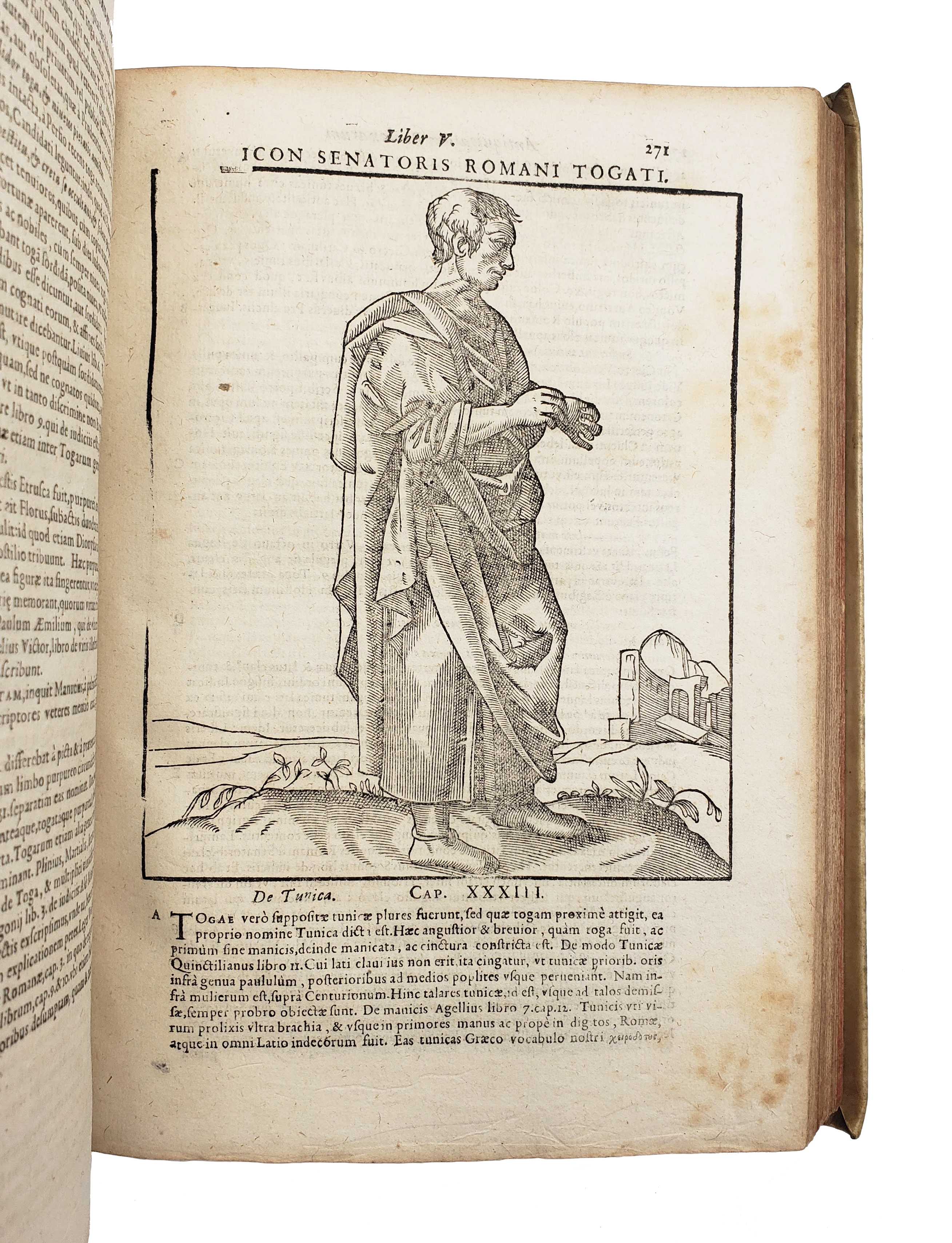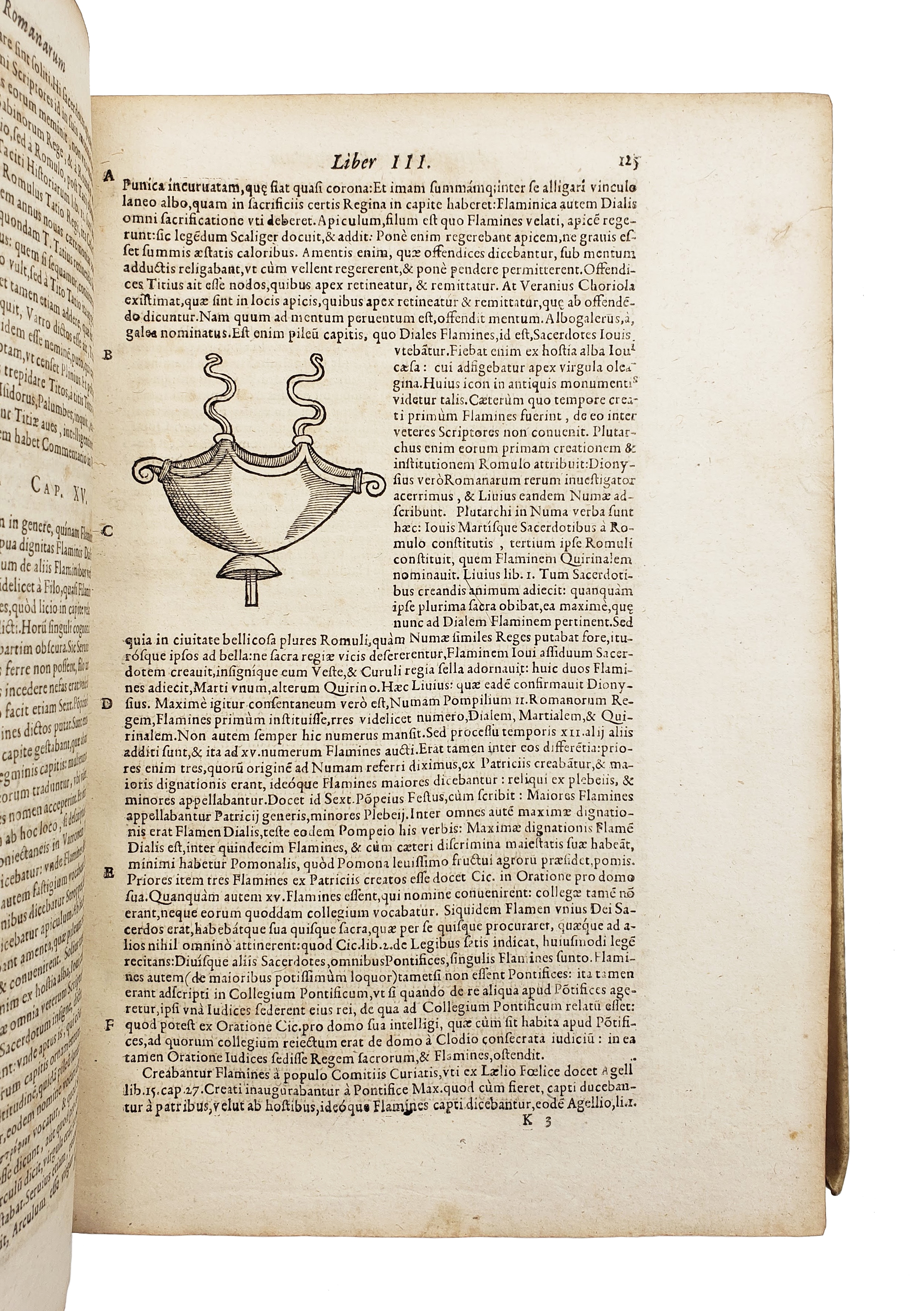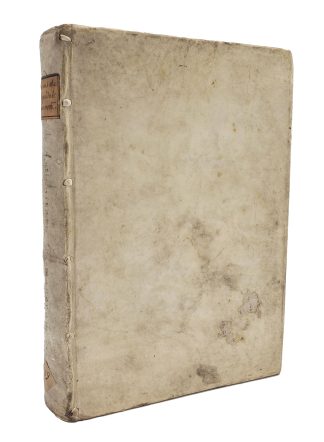ROSINUS, Johannes.
Antiquitatum romanarum libri decem
([Geneva]: Stephanus Gamonetus, 1611)£1,500.00
4to in 8s. pp. [xxxii], [600], [xxc]. Roman, Italic, occasional Greek. Titlepage in red and black with printer’s woodcut device, woodcut initials, decorative ornaments and tailpieces, two double page plates depicting ancient Rome and a Roman military camp, numerous in-text woodcut illustrations. Light browning and scattered spotting throughout, marginal paper flaw to V7. A good copy in contemporary vellum over boards, yapp edges, contemporary title and shelf-mark (‘959’) labels at head and tail of spine respectively. Front pastedown with bookplate of Patricia Milne-Henderson, rear paste-down with ruled-through autograph of Andrew Fletcher of Saltoun (1653?-1716) and (in different hand) ms. ‘Andrew Fletcher | December 28, 1705’. Ms. ‘sum [?]’, C17 ‘Andreae Fletcherae [?]’ to fly, later ‘A. F. from [?]’ to rear of end-paper, early ms. price (?) on verso. Binding slightly marked.
Johannes Rosinus (1551-1626) was a Lutheran pastor and rector of a school in Regensburg. He is primarily known for his Antiquitatum romanarum, one of the age’s most popular illustrated encyclopedias of Roman antiquity. It first appeared in Geneva in 1583 and went through numerous editions over the next decades.
The work is divided into ten parts. The first (‘de urbe et populo Romano’) deals with the Roman people and the city’s topography (it contains the fold-out map of historical Rome). Books II and III focus on Roman religion, including major and minor deities, temples (there is a large woodcut of the temple of Janus), and the sacerdotal class (‘de diis, templis’, ‘de sacerdotiis’). Book IV concerns the Roman calendar and feast days, Book V the games and spectacles. Books VI and VII discuss Roman politics and statecraft (“de comitiis”, “de magistratibus”), while Books VIII and IX explore the intricacies of Roman law and judicature (“de legibus”, “de iudiciis”). The final book discusses the structure of the army, and includes a fold-out map of a Roman military camp. There is a very detailed and useful index.
This copy belonged to Andrew Fletcher of Saltoun (1653?–1716), the Scottish political theorist and book collector, “the most learned Scotsman of his day”. He was involved in the Monmouth Rebellion of 1685 but had to flee the expedition after killing one of his own side’s leading figures in a brawl. Sentenced to death for treason in absentia, Fletcher later returned to England with William of Orange in 1688. He was vociferously opposed to the Act of Union between England and Scotland which was eventually ratified by both parliaments in 1707. “Fletcher assembled what was then probably the largest private library in Scotland. Particularly rich in history, the classics, and theology, it comprised approximately 6,000 volumes, including 48 incunables and some MSS. The library remained intact until 1966–7, when it was dispersed at auction by Sotheby’s.” (A. S. G. Edwards)
USTC 6703650. Not in VD17. A. S. G. Edwards, ‘Fletcher of Saltoun, Andrew (1653?–1716)’, in The Oxford Companion to the Book (2010).

